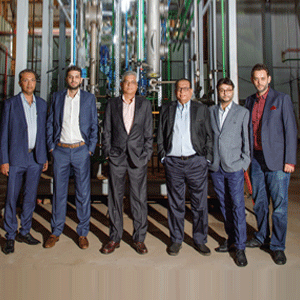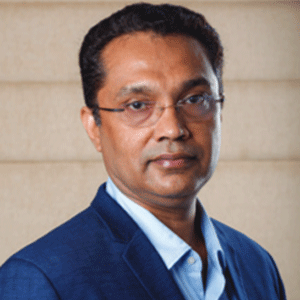
Indian vegetable oil economy is the world's fourth largest after the US, China and Brazil, harvesting about 25 million tonnes of oils seeds. India's share in world production of oilseeds has been around 10 percent. Although, India is a major producer of oilseeds, per capita oil consumption in India is only 10.6 kg/annum which is low compared to 12.5 kg/annum in China, 20.8 kg/annum in Japan, 21.3 kg/annum in Brazil and 48.0 kg/annum in USA. Vegetable oil consumption has increased due to the rise in household incomes and consumer demand. Also, India has become the biggest buyer of vegetable oils in the world, as rising urban population; changes in consumption patterns and domestic production have all contributed majorly to the country's increasing import of edible oils. India imports half of its edible oil requirement, making it the world's third largest importer of edible oil. The country buys soya oil from Argentina & Brazil and palm oil from Malaysia & Indonesia.
Currently, India accounts for 11.2 percent of vegetable oil import and 9.3 percent of edible oil consumption. With a population of more than 1.3 billion, India is the largest consumer of vegetable oil in the world, India's vegetable oil consumption totals some 23 million tons, of which local production takes up just 7-8 million depending upon the monsoon, but imports make up 15 million tonnes. 70 percent of edible oil is imported, which is also a challenge to food security. An increase in the production will also need capable machinery and plantations that can boost the native production. Solution providers in this segment haven’t had large scale impact on the business ecosystem until now but slowly and steadily things are changing. There has been major thrust in native manufacturing recently which has led to an all-round development of the national economy. So, with the changing scenario, clients are also expecting better and better from the solution providers in this domain.
Hence, customers are looking for a technology partner who can solve their manufacturing challenges. They also want someone who offers realistic solutions rather than a mere proof of concept. There is an expectation of prompt and responsive after sales service and quick turnaround of spare part orders. Kumar Metal Industries based in Mumbai has identified and addressed the pain points which they aspire to mitigate as the minimum requisite standard. Biju George Palayil, CEO, Kumar Metal Industries states, “Our solutions are robustly engineered, versatile and operationally profitable oilseed processing plant and machinery. The company’s custom solutions are designed to solve customer challenges and our sales, technical and support teams apply their knowledge of the field to the solutions in our product portfolio to offer the most optimal solution that solves the challenges.”
The Growth Story
Kumar Metal Industries started in 1939 as a small workshop in Lahore, erstwhile Punjab. Until 1947, where they made spare parts for machinery used in oil mills. Its customers included Tata Oil Mills, Godrej Oil Mills and Lever Brothers. At the time, only British equipment was sold to Indian companies, and local manufacturers were only allowed to manufacture and supply spares. During partition, Kumar Metal Industries founder Onkarnath Manaktala left everything he had built and made the journey to India with his family and nothing more than the clothes on his back. Since all his customers were in Bombay, it was logical for him to relocate to the city and start over again. He rented a small workshop in Mazgaon, central Mumbai and restarted his business supplying spare parts to oil mills across the country.
As the business development efforts stepped up to meet increasing demand, the company opened a new factory at Manor in 2003 and moved their entire manufacturing operations there. At this time they also entered into technology collaboration with Crown Iron Works USA to manufacture and
sell solvent extraction plants and refineries in the Indian, African and Asian markets. Kumar Metal Industries has the distinction of manufacturing and installing the largest SEP ever made by an Indian company at 4000 TPD for Crown's customer in Brazil. “We have designed custom solutions for over 500 customers in over 65 countries and delivered over 700 Turnkey-360 projects. We have more than 100 installations of extraction and refining plants in Asia, Africa, Middle East, New Zealand, the Pacific islands and South and Central America. We count Wilmar, Cargill and ADM amongst our top customers. A significant portion of our business comes from repeat orders, a testament to our customers' enduring faith in us,” says Biju.
Carrying Along The Name
Kumar has served the oils and fats industry in India and around the world since 1939. Their almost a century of experience, coupled with the technology first approach and customer focus have helped them maintain a strong advantage within the market. They have also signed up key technology associations with global leaders in the oils and fats processing industry including Crown Iron Works USA, Crown Europa, Anderson International USA and Arisdyne USA.
“Our focus on dependable engineering has accumulated us over 500 customers in over 65 countries and we've worked on over 700 Turnkey-360 projects. We are continuously strive to upgrade our equipment and project delivery standards across all areas - engineering, manufacturing, installation, site services and after sales. We use the latest software to design and engineer projects and plants as well as the rendering of piping, instrumentation and electrical layouts for optimum performance and ease of installation”, Biju mentions with pride.
Kumar is an EPCC (engineering, procurement, construction and commissioning) company. They currently undertake turnkey projects and supply equipment and machinery to the oils and fats industry and its allied sectors. Their specialities include Edible/non-edible vegetable oil extraction (preparatory, milling, expelling, solvent extraction), Edible/non-edible vegetable oils or fats pre-treatment (degumming, de-waxing, bleaching), Edible/non-edible vegetable oil or fats refining (physical or chemical), Modification of oils and Fats (via hydrogenation or dry fractionation/crystallization, esterification, inter-esterification, trans-esterification), Value added or specialty products (margarine, bakery shortenings, MCT, lecithin), Biodiesel (from any kind of vegetable oils, acid oils, fatty acid distillates, tallow and animal fat), Oleo Chemicals (distilled or fractionated fatty acids/fatty acid methyl esters/fatty alcohols, refined glycerine, soap noodles [pre-treatment, splitting, distillation - plain or fractional, hydrogenation, esterification, saponification, flaking, beading]) and By-products value addition or waste products recovery (Oil extraction spent earth/catalysts, conversion of soap stock to acid oils).
They also supply batch, semi-continuous and continuous plants manually operated fully automated PLC/DCS controlled with remote monitoring for any capacities for commercial or pilot facilities, including storage, utilities and packaging for finished products.

Mr. Biju George Pal Ayil, CEO
Looking At The Future
Kumar believes that with increasing purchasing power, the retail market will continue to drive up demand for high quality, healthy oils, low in cholesterol and calories as well as organic and cold pressed oils. There exists, however, in developing markets a huge gap in supply and demand - India for example, imports 60 percent of its edible oil. As a company they actively upgrade their technologies, manufacturing set up as well as team capabilities. They seek mutually beneficial partnerships - tech or commercial and expand their footprint through representation in new markets. The company is also in the process of establishing service centres in geographic proximity to customer clusters to ensure that customers have access to support when they need it earlier.
Speaking about the future goals of the company, the CEO concludes, “Another area of expansion will come with the natural skincare segment where oil-based cosmetic products are increasingly in demand.”
Om Innovation Centre
Kumar Metal Industries sets up world class innovation centre to advance process technology for the edible oils industry Kumar, has made a significant investment in their future with the launch of the OM Innovation Centre, a technology insight, advancement & collaboration hub at their Mumbai headquarters.
Kumar Anderson Tie-Up
Kumar has made an exclusive tie-up with Anderson International USA with a manufacturing license to produce Anderson Dox Extruders & Solvex Expanders for the Indian market.
Kumar Metal Industries appoints industry veteran Biju George Palayil as CEO to spearhead next phase of growth
Kumar Metal Industries, India's leading process engineering company for the Oils and Fats industry announced the appointment of Biju George Palayil, as the new CEO. In his role as CEO, Biju will diversify the Kumar Metals product portfolio, spearhead business development and expand the company's footprint into newer geographies.
Biju brings immense capability, with a formidable background in Marketing, Operations and Project Management going back 27 years. He is a Bachelor of Science (Tech.) with a specialization in Oil Technology from Nagarjuna University and an alumnus of the Indian School of Business in Hyderabad, where he was awarded an Masters in Business Administration.
We use cookies to ensure you get the best experience on our website. Read more...